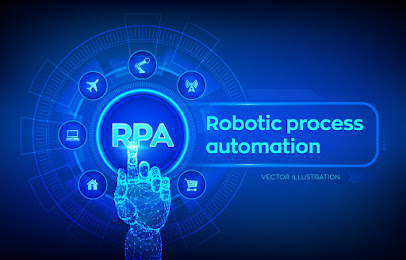RPA | Future of the World
We are in technology era. Here, maximum number of
works are make it in simple way. There is almost no aspect of our lives that is
unaffected by automation. Some examples are washing machine, microwave oven,
vacuum cleaner etc. RPA also one of the automation process, but not in usual.
In this article, we expose about RPA in full detail with its benefits and scope
in industries.
About RPA :
Robotic Process Automation (RPA) is not a physical
or mechanical robot. It is a software tools that partially or fully automated
human activities that are manual, rule-based, and repetitive. These software
robots also performs complex calculations and Decision making on the basis of
data and predefined rules. For tasks, that are largely driven by rules,
schedules or events, a robot can take the wheel and get the job done.
Some of the technologies being adopted with RPA as
follows:
· Machine learning
· Natural language processing
· Natural language generation
· Computer vision
RPA platforms allow the program, called Robots, to
interact with any application in the same way a human would do.
Components
of RPA:
Any Robotic process automation platform provides
some basic components, which together build the platform. The following are the
basic or core components of RPA:
· Recorder
· Development Studio
· Plugin/Extension
· Bot Runner
· Control Center
RPA Tools:
There are many tools used for robotic process
automation. We listed out the topmost tools for RPA:
· Blue Prism
· UiPath
· Automation Anywhere
· Inflectra Rapise
· Pega
· Contextor
· WorkFusion
· Kofax
Benefits
of RPA:
· Higher quality services
· Improved analytics
· Reduced costs
· Increased speed
· Agility
· Comprehensive insights
· Versatility
· Simplicity
· Scalability
· Time Savings
· Non invasive
Scope
of RPA in industries:
RPA is getting immense popularity in the modern IT
Marketplace. The presence of RPA can be felt almost everywhere like banking,
finance, healthcare, insurance, or telecom industries etc. It will make the
monotonous tasks more interesting by taking the advantage of uniquely human
abilities.
RPA offers plenty of career opportunities, including
developer, project manager, business analyst, solution architect, and
consultant and these job pay well. The average RPA salary is $73,861, but that
is the average compiled from salaries for junior-level developers up to senior
solution architects, with the top 10% earning over $141,000 annually. The
global market of RPA is expected to grow by $8.75 billions by 2024.
According to Deloitte, SMEs can pay from $4,000 to
$15,000 for one bot. However, enterprise organizations may need as much as $20
million, for a complete RPA solution of up to 500 robots, which can displace
over 1,000 employees, and generate over $100 million in savings. The RPA system
reduces the time contributed by employees in performing manual tasks; to
increase the speed of business operations and to better revenues in the long
run. The RPA implementation cost varies from one vendor to another. RPA solutions
from UiPath cost as much as $20,000, depending on the level of automation
needed.
M. Naveenkumar
S.Sakthikumar








Nizz da boi 💯💥💥
ReplyDeleteI got some knowledge from the article
ReplyDeleteContent is good keep rocks
Nice initiative and technology upgrade .
ReplyDeleteKeep up your goodwork.